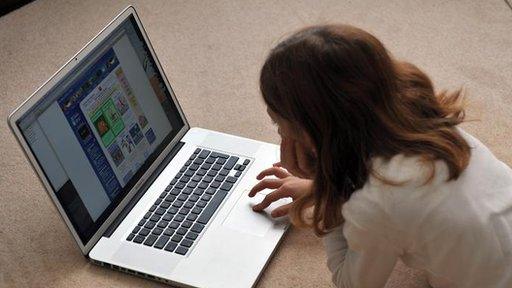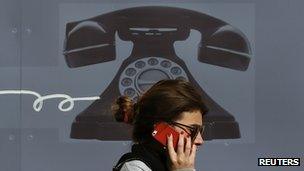UK government tackles wrongly-blocked websites
- Published

Net filters that are supposed to prevent children from inappropriate material have blocked access to educational and charity sites
The government is drawing up a list of sites inadvertently blocked by the filters it asked internet service providers (ISPs) to implement.
Many sites on the list are run by charities that aim to educate children and others about health, sex education and drugs issues.
The whitelist will be used to ensure the sites are not immediately blocked.
The list has emerged from a working group looking into accidental blocking and how to fix the problem.
'Master list'
The group is also looking into ways to set up a standard system that will let any site which thinks it has been wrongly blocked tell ISPs about the mistake so it can get on to the approved list.
"Research suggests the amount of inadvertent blocking is low," said David Miles, who chairs the working group on over-blocking for the government's UK Council for Child Internet Safety.
"However. if you are a charity and you deal with teenagers in distress that 1 or 10 matters to you."
Other reports have suggested that many innocuous sites such as TorrentFreak, a copyright and privacy news site, are being accidentally caught up in the filters ISPs are starting to use.
A spokesman for the Internet Service Provides Association said: "There's a growing realisation that filters are not perfect and will lead to some over-blocking,"
"There's a feeling that some sites sit in a grey area and more needs to be done for them."
The working group was set up in the wake of a Downing Street internet safety summit held in November 2013 which aimed to get ISPs doing more to filter inappropriate content.
The group first met in December and involved ISPs, charities, representatives from government, the [British Board of Film Classification] BBFC and mobile operators.
Since then, Mr Miles said he had been reviewing research on inadvertent blocking and visiting charities to find out how the steady introduction of web-based filters for adult and inappropriate material had hit visitor numbers.

UK mobile operators have run site blocking systems for some time
"We are building a master list of sites that the charities are helping us with and actively testing this right now," Mr Miles told the BBC.
Soon the list would be shared among ISPs that had introduced network-level filters to ensure that the educational sites were widely viewable.
The need for the list of sites wrongly blocked would become more pressing in 2014 as ISPs contacted established customers and asked them to choose whether to switch on the filters, he said.
Currently most big UK ISPs only ask new customers to make a choice about net filters.
"What we are seeing in the UK is quite unusual," said Mr Miles, who is also the European director for the Family Online Safety Institute.
"At the ISP level, on public wi-fi and via mobile operators, the UK will be subject to a substantial amount of network-level filtering all of a sudden."
"That new network-level filtering could increase the level of over-blocking," he said.
Getting systems in place now would help later in the year as more and more web browsing becomes subject to filtering, he added.
Eventually, Mr Miles said, standardised systems might emerge that let sites check if their content falls foul of the filters, or put in place a simple way for sites to inform all ISPs that they do not have inappropriate content.
- Published29 January 2014
- Published16 January 2014
- Published7 January 2014
- Published18 December 2013